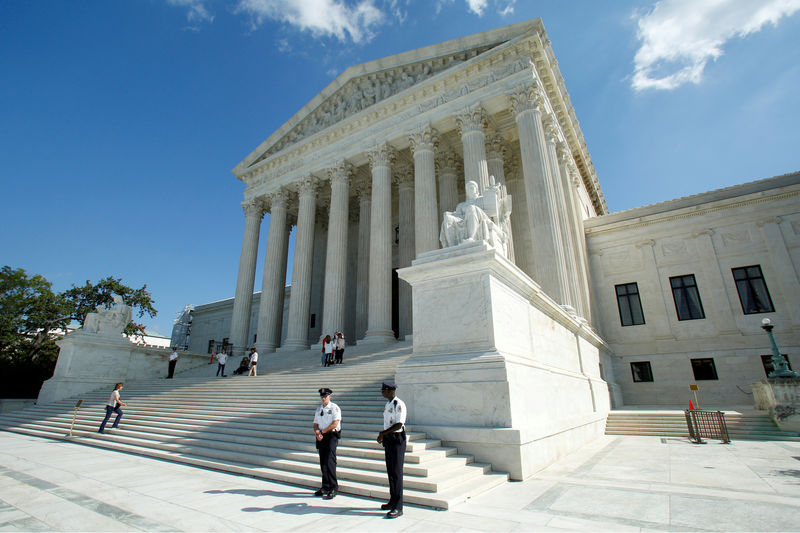By Andrew Chung
(Reuters) - The U.S. Supreme Court on Tuesday agreed to hear Ohio's appeal of a lower court ruling that blocked the Republican-led state's policy of purging people from voter-registration lists if they do not regularly cast ballots because it violated federal law.
Civil liberties advocates who challenged Ohio's policy said it illegally erased voters from registration rolls and unlawfully disenfranchised minorities and poor people who tend to back Democratic candidates. The justices will review a U.S. appeals court ruling that Ohio's policy ran afoul of a 1993 law called the National Voter Registration Act, which Congress passed to make it easier for Americans to register to vote.
A Reuters analysis last year found that in Ohio's three largest counties, which include Cleveland, Cincinnati and Columbus, voters were struck from the rolls in Democratic-leaning neighborhoods at roughly twice the rate as in Republican neighborhoods under the policy.
Ohio officials argued that canceling registrations for voters deemed inactive for six years helped keep voting rolls current and accurate, clearing out those who have moved away or died. In September 2016, ahead of the U.S. presidential election, the 6th U.S. Circuit Court of Appeals in Cincinnati ruled that the policy was unlawful.
Democrats have accused Republicans of taking steps at the state level, including laws imposing new requirements on voters such as presenting certain types of government-issued identification, intended to suppress the vote of minorities, the poor and others who generally favor Democratic candidates.
The American Civil Liberties Union last year sued Ohio Republican Secretary of State Jon Husted, arguing that the state was violating the National Voter Registration Act, which prohibits states from striking registered voters "by reason of the person's failure to vote." The 6th Circuit agreed.
Under Ohio's policy, if registered voters miss voting for two years, they are sent registration confirmation notices. If they do not respond and do not vote over the following four years, they are removed from the rolls.
Husted has said Ohio's policy has been in place since the 1990s under both Republican and Democratic secretaries of state.
The suit said the policy led to the removal of tens of thousands of people from the voter rolls in 2015, including one of the lead plaintiffs, Larry Harmon, a software engineer and U.S. Navy veteran who was blocked from voting in a state marijuana initiative in 2015.
Republican Donald Trump won Ohio in last November's presidential election.
The National Voter Registration Act, dubbed the "Motor-Voter" law when it was enacted, required states to permit registration by mail or when eligible people apply for or renew a driver's license, or visiting certain government agencies or military recruiting offices.

(Corrects spelling of first name of Ohio secretary of state Husted in 6th paragraph, Jon instead of John.)